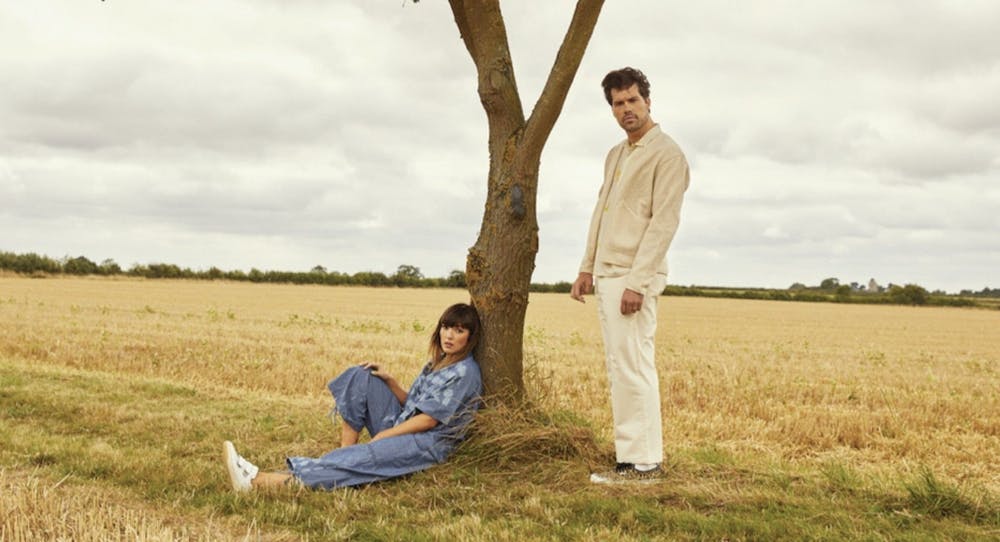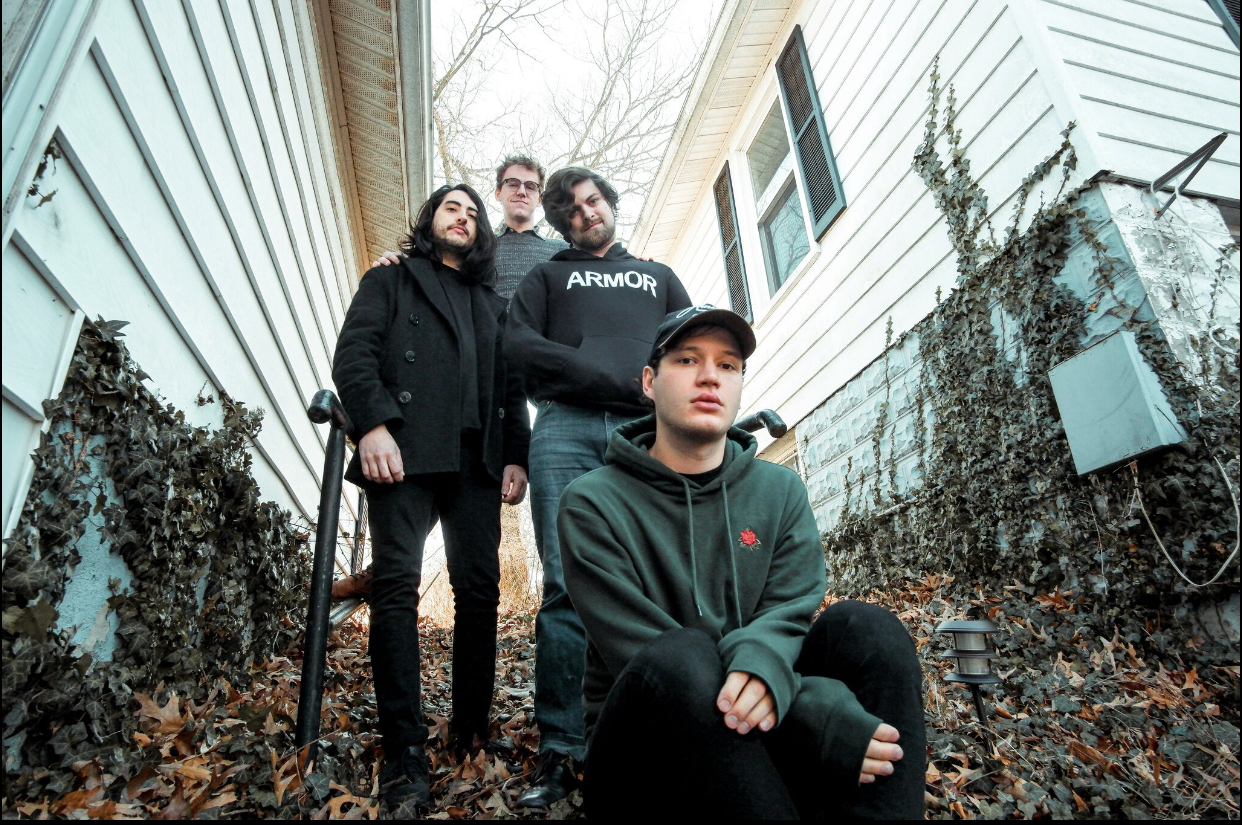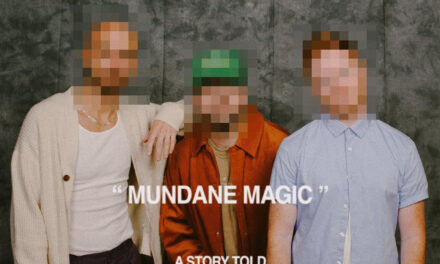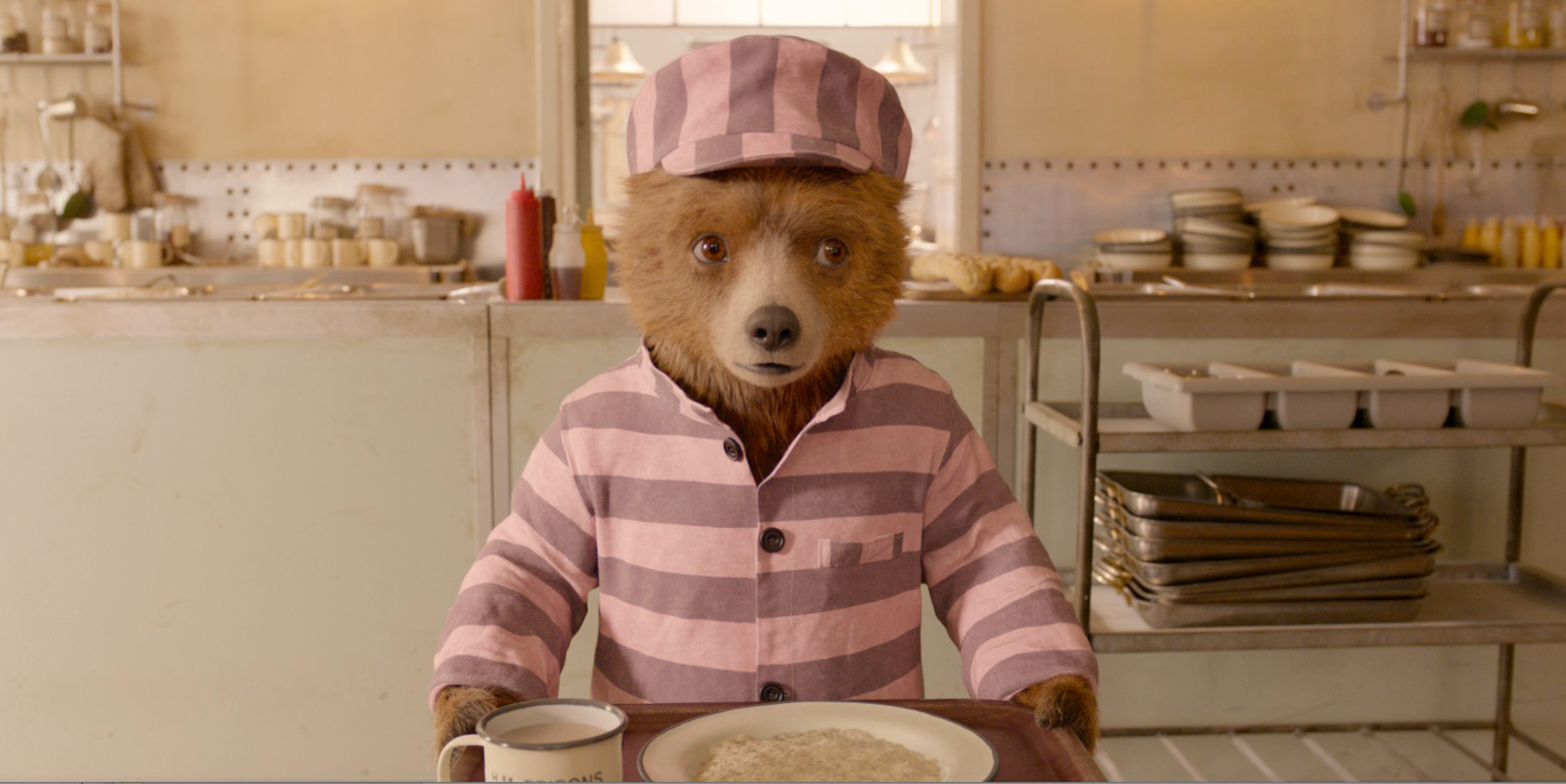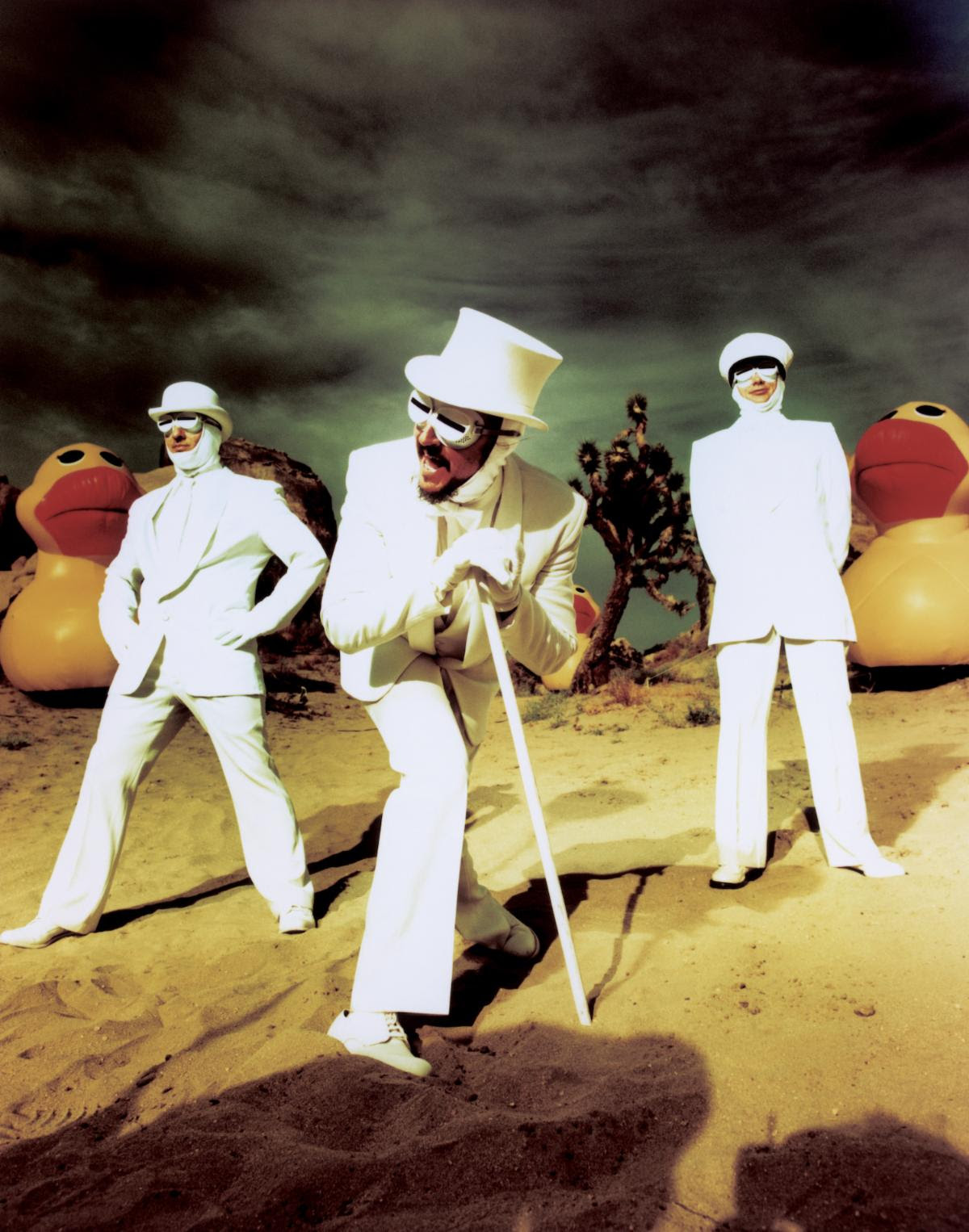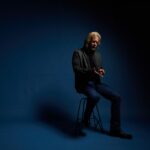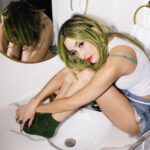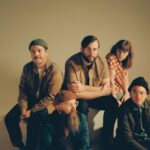’22 Break,’ the fourth album from London-based alt-pop duo, Oh Wonder, is an honest depiction of the struggles that they experienced during that period. Through the pandemic, many people underwent an inner metamorphosis. Things that they deemed essential experienced a reshuffling. In some cases, the partners and relationships received a massive shock because there was nowhere to run from the truths tucked away through various modes of escape. The music industry was at a standstill – the halls and arenas that artists and fans both shared as emotional exchanges of energy were temporarily shut down. The band, comprised of Anthony West and Josephine Vander Gucht, were trying to cope with what this meant for them – both individually and as a duo.
Within that process, begets strife and heartache as the two briefly split apart during the pandemic. However, it was the musical process that brought them back together. Noted as “maybe being the first break up in history written with the person you’re breaking up with,”’22 Break’ is like a scab being re-opened. It contains all the majestic musicianship that we’ve come to expect from Oh Wonder, but an acute sense of self-awareness of the rocky time that they were living within. It’s the argument through shallow walls, broken pieces of a chair, and the seat of longing. Having come out of the other side (West and Vander Gucht are now married), the album is a testament to their belief that they shared a united fate.
When we spoke in early 2020, No One Else Can Wear Your Crown was born out of the first instance of downtime that you both have had. It was a celebration of revealing your relationship. Now, we’re coming out of a forced period of isolation from the COVID-19 pandemic. How was that experience for you both, given the usual outlets for your creativity in a live sense, was temporarily out of commission?
Anthony: It was definitely a transition. Our job is split into two. It’s the studio and touring. Typically, you have a choice of doing either. Then suddenly, we only had one option, which was well, we’d be in the studio or do nothing. They balance each other out because the studio is very solitary. In a good way, it’s very wholesome, isn’t it?
Josephine: Yeah, it’s more creative than touring. But then with that comes the sense of, if you’re not creative and you have to be in the studio, that’s a dangerous combo. We found ourselves anticipating touring and then being at home. But then not got into the mindset of like, “cool, we’re going to make some music.” So we just got home like, “Oh shit, this is weird because we don’t have anything to do.”
You obviously make your own work. So, you have to feel motivated and inspired to wake up and write tunes. If you’re not feeling that, it contributes to the overall sense that you’re useless. We had a tough first couple of months just trying to adjust.
Anthony: I guess also sad that the energizing part of our job was just taken from us. Everyone was in similar positions in different situations in their lives.
In terms of relationships, a lot of couples have got through a gauntlet of questions? Who am I? Is this the right person for me? A lot of relationships got stronger during lockdown, and some fell apart. In being in On Wonder together, was there a similar dynamic of reflection you both had?
Anthony: Being together is something we’re well-trained with. Friends were like, “I’m hanging out with my partner so much.” We said, yeah, welcome to our world.”
Josephine: I guess we were fortunate that we had six years of intensely spending time with each other in all different scenarios. Therefore, when the pandemic hit and everybody was locked down, spending time with each other wasn’t the issue. It’s never been an issue – we could spend forever with each other, and it would still be awesome. It was more like; personally, if you imagine us as two separate people, we were both grieving the loss of our jobs as we knew it.
When you excite yourself up to release an album and go on tour, you’re in such a headspace. You’re physically charged and prepared as if you’re ready to go into battle. Then overnight, someone’s like, “Oh, no, you’re good. Just you can take a seat.” Then you’re like, what? So, we were both individually trying to process that. Because you’re both in this awful headspace, you can’t be there for the other one. It’s tough to provide comfort for a person when they are deep down in the sub trenches with you.
Then you take out all your frustration on the only other person who’s there, and vice versa. You’re starting at a low baseline of being able to rationally work anything out – because there’s so much emotion, and you’re pinning it all on the other person. I think in hindsight, that’s definitely what happened.
Anthony: Yes, just because there’s no other way to do it.
Josephine: There’s no other escape, but then we found music. That was a vehicle for talking about it. You can’t ever say a song is wrong or go to that lyric and point to it and think, “you can’t say that.” That’s the joy of art that you can express yourself, and it’s fun. It’s right. There’s no such thing as wrong art. So, it was like our safe space to talk it out without offending the other one, if that makes sense.
In “Don’t Let The Neighborhood Hear,” Anthony is singing the last part of the song. Some of 22 Break feel like you are speaking to one another through musical arrangements or lyrical structure. Were there specific moments in the recording process where you would listen and play off of each other?
Anthony: Definitely. There are a lot of moments where Josie would write something, and I hadn’t heard it yet. She’d sing it, and the other way around, I do the same. That’s probably what makes the album feel quite raw because there was no overthinking. There was no like, “oh, that line could be better.” Because there’s no such thing as better when it is what it is.
Josephine: We didn’t go back and rewrite any of the lyrics.
Antony: That’s kind of what a lot of it feels like – it’s a sketch pad. We’re figuring stuff out, which we now see is the most authentic thing we’ve done. I guess because of that; we didn’t overthink it. It was like, “this is what we need to say.” There’s no other way of saying it because it is what it is.
Josephine: I guess we just never thought we’d release some of these songs because they’re so personal. That was never anticipated. But then, I guess we got to the end of it and knew that we were proud of this stuff. Usually, you take time off tour, and you go, “cool. We’re making an album. What should it be about?” Whereas this was like, “let’s just write because we’ve got nothing else to do.” We can’t do anything else. Can’t leave. We can only sit at home, and that gets boring after a week. So you’re like, let’s write that fricking song, you know? We were writing for catharsis more than anything.
With ‘Free,’ it recounts New Year’s Eve of 2013, that first look of love you both had. As the song contemplates how you got to this hard place, it comes back to “I said I never loved you/but I always loved you.” Even with the hard things, there’s beautiful synchronicity of rediscovering 2013, but differently.
Anthony: Yeah, I think songs like ‘Free’ and ‘Kicking The Doors Down’ act like breathers in the album. You’ve had this intensity of four or five other tunes that build-up, and then you get to take a breath. I think when we were writing them, they acted like that as well. Some days, it’s a lot of heavy songs, and then out popped these two light ones—we kind of needed those.
I remember when we talked about the song “In And Out Of Love,’ that you both said you love each other so much that even if you didn’t know each other, you’d still be waiting for the other. ‘You > Me’ feels similar when you say, “I loved you more than I love myself/Can’t believe I had myself.” It’s an inevitability that you both found each other again, and through the medium you both share, music.
Josephine: It’s the sense in that it’s why we’ve not broken up. Even if we wanted to at times, it’s just an impossibility. I can’t explain it in another way. My life wouldn’t exist if Anthony wasn’t in it as my musical and romantic partner. It just wouldn’t. I think that when that’s like your floor, some days it’s hard to build and some days it’s really easy to make. You can’t dig underneath. That’s just gravity.
Anthony: Even if the songs explore what’s underneath…
Josephine: You’re always going to end up at the floor. That’s a terrible metaphor. Because you have such a secure base, you can explore all these things. You can be vulnerable, angry, and all the other emotions in this album, knowing that it’s always it can only ever end up one way. I think the inevitability of us as a partnership is just…
Anthony: It’s like watching a Disney film expecting there to be a sad ending. You’re never going to get a sad ending.
The short film you made with Thomas James is a highly symbolic and raw depiction of the entire album. It’s in black and white. There is imagery like a house engaged by flames and branches—an instance of beauty when Josephine plays with the butterfly. Even with the example of rage, you both end up running to each other. I wonder, how did it feel reliving that turbulent time through making this film?
Anthony: Yeah, it was strange. It was also our honeymoon. Most couples run toward each other on a beach in the Bahamas.
Josephine: It’s more like, “I got you a cocktail!”
Anthony: More like, “I got you an argument.”
Josephine: Um, yeah, I couldn’t recommend that as an experience. I’m not going to lie.
Anthony: I think it strengthened us, probably.
Josephine: I think the only way I’m rationalizing it now is that Anthony and I have possibly the best job in the entire world. Obviously, not for everyone., but I feel it’s a dream job. Nothing in life ever comes completely 100% brilliant. That was a shit two weeks. I mean, it was amazing. But it was tough. Not just physically, but also emotionally, to have to relive the breakdown of your relationship in front of 25 people.
Anthony: We already said what we needed to say on the record.
Josephine: We’ve made an album about it, and now we’re doing iterations already.
Anthony: It was our idea.
Josephine: We shot ourselves in the foot, but it’s okay. I just take that as it was something we had to do to. To fully put the nail in the coffin, That’s a dark phrase.
Anthony: To punctuate it.
Josephine: Moreso to draw a line under it. This was the last thing we had to do. When someone shouts “that’s a wrap,” and everyone claps, we never have to address this album again, apart from obviously promoting it. I think it was an awesome thing to have made.
Anthony: It just emphasizes the need to listen to the album as a whole. I think it has to be digested in that way for it to be fully understood.
You both performed the entire album at The Albany for the first time a week ago. I could imagine that was an emotional experience having a crowd feel the magnitude of these songs in a live capacity with you. How did that feel, and how do you anticipate it will resonate on your world tour next year?
Josephine: It was really powerful.
Anthony: Powerful. More powerful than any other. Maybe our first show was equal on that scale.
Josephine: Yeah, I felt really exposed. We were really smart and put a screen between us in the audience, so we didn’t have to look anyone in the eye. Obviously, we won’t be able to do that. We are super excited about the tour next year. It’s been a minute since we visited the states. Yeah, so we’re excited to have a few weeks of shows around the US, like buzzing through it. I think the secret will be mixing these songs with old songs so that nobody can like wallow in the summer.
Anthony: Yeah, we noticed that our shows, instead of mosh pits, we have cry pits.
Josephine: It’s good. It’s good to release, but I think I’m going to be the one crying this time around. So yeah, I’m excited!
Throughout this entire process, what’s one thing that you’ve discovered in each other to keep each other going?
Anthony: I think I saw a lot of determination in you to make it through the other side. I think we both kind of took that online. There’s a lot of grit from both of us just to keep going. There’s light coming in.
Josephine: Yeah, and even when I think we’d patch things up a lot, there was still a sense of “guys, I’m going to need the mixes of these songs in like two weeks.” Then you’re like, “okay, but I’m actually in a really good place. I don’t need to continue making this album.”Then we had to mix it all. Then they were like, “we’re going to need the artwork and some photos and the film.” You’re like, “okay, but I’m out the other side. I’m back in love with my husband. So, it’s all good.”
We just got married, and our label was like, “yeah, but if you could just go revisit the album.” I think that was tough. It’s one of the reasons I’m with Anthony. He’s relentless in his pursuit of fulfillment. When I say fulfillment, I mean fulfilling his potential and getting the most out of life that he can. I don’t think either of us would have dared let the emotional battle of trying to finish an album stop us from doing that. I think we just had to persevere because we’ve strived and sailed through this.
Anthony: Yeah, it was amazing that we had it in us.
Josephine: Yeah. Now I have this overwhelming sense that no matter what, we won’t give up.
Anthony:100% if we can do that.
Photo Credit: Josh Shinner

